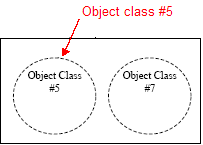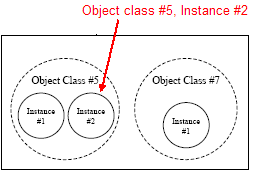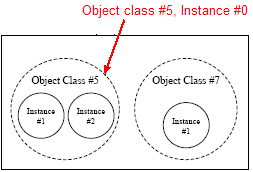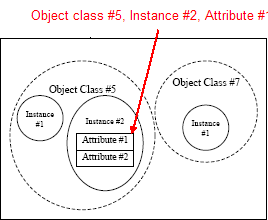The dialog contains a list of the parameters that are defined in the EDS file. You can define your own generic parameters in addition to the specified parameters.
The values of the selected parameter are displayed in the lower section of the dialog. They can be changed there.
|
Show parameter groups |
|
|
Generic parameter |
|
|
Name |
Name of the generic parameter |
|
Class |
Each object class that can be addressed by the network is identified by an integer value.  A class can also be addressed from the class by specifying a special object instance (see “Instance”). |
|
Instance |
Integer value for the unique identification of an object instance within a class. Example of an object instance:  If the value 0 is assigned to the instance, then the class itself is referenced by this special instance. Example – object instance 0:  |
|
Attribute |
Integer value that can belong to a certain class or instance. Example attribute:  |
|
Data type |
Different data types (e.g. BOOL, UDINT, WORD, DWORD...) |
|
Bit length |
8, 16, 32 |
|
Value |
Input of different values in different output formats. |
The values for “Class”, “Instance”, and “Attribute” are defined in the "CIP Networks Library" (Vol. 1 and 2) or in the manual of the device manufacturer.




CAUTION

When individual values are entered, a plausibility check is not performed. Any errors are identified only when the bus is started and they are reported with a message in the log file.






 : Display of the parameters sorted by parameter groups
: Display of the parameters sorted by parameter groups